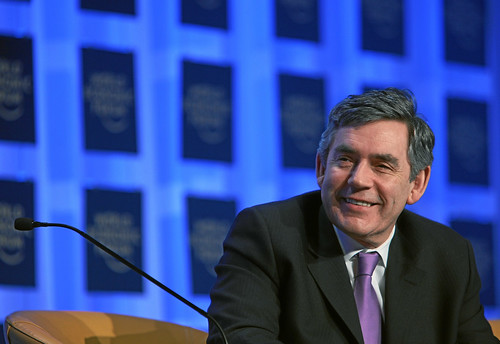Krugman asserts that, due to denial of climate change failing to gain sufficient purchase to block the bill, its main opposition will be based on the bill’s potential cost. In response to this, Krugman argues that whilst saving the planet will not come free - it will not cost all that much either. He quite rightly argues that the early stages of conservation to a lower carbon economy will not be particularly demanding.
First, the evidence suggests that we’re wasting a lot of energy right now. That is, we’re burning large amounts of coal, oil and gas in ways that don’t actually enhance our standard of living — a phenomenon known in the research literature as the “energy-efficiency gap.” The existence of this gap suggests that policies promoting energy conservation could, up to a point, actually make consumers richer.
Krugman then puts the longer-term costs in perspective.
[I]n 2020 the bill would cost the average family only $160 a year, or 0.2 percent of income. That’s roughly the cost of a postage stamp a day. [...] By 2050, when the emissions limit would be much tighter, the burden would rise to 1.2 percent of income. But the budget office also predicts that real G.D.P. will be about two-and-a-half times larger in 2050 than it is today, so that G.D.P. per person will rise by about 80 percent. The cost of climate protection would barely make a dent in that growth. And all of this, of course, ignores the benefits of limiting global warming.
Although Krugman successfully defends the bill from arguments based on expense, he misses a far more important point. Whilst Obama has edged away from his predecessor’s ‘head in the sand’ approach to climate change, the Waxman-Markey bill is a considerable distance from the ideal. There are too many loopholes and too many concessions. Obama's talk of taking a "bold and necessary step" to "confront America's energy challenge and reclaim America's future" is hollow.
In terms of the bill’s substance, George Monbiot notes that:
The cut proposed by 2020 is just 17%, which means that most of the reduction will take place towards the end of the period. What this means is much greater cumulative emissions, which is the only measure that counts. Worse still, it is riddled with so many loopholes and concessions that the bill's measures might not offset the emissions from the paper it's printed on. You can judge the effectiveness of a US bill by its length: the shorter it is, the more potent it will be. This one is some 1,200 pages long, which is what happens when lobbyists have been at work.
The bill also ignores the greenhouse impact of biofuels, thereby encouraging its usage.
In almost all cases, biofuels made from grain or oil crops create more greenhouse emissions than petroleum. This is partly because they lead to an expansion in total crop production, which means that forests must be cut down, unploughed pastures must be tilled and wetlands must be drained to accommodate it. The carbon stored in both the vegetation and the soil is released and oxidised.
The impact of biofuels has been devastating on the worlds poor.
In 2008, the expansion of biofuel production was directly responsible for the decline in global food stocks, which caused grain prices to rise, catalysing famines in many parts of the world. Cereal stockpiles declined by 53m tonnes; the production of biofuels, mostly by the US, consumed almost 100m tonnes, according to a piece in the Economist on 6th December 2007. As the UN's special rapporteur, Jean Ziegler says, turning food for people into food for cars is, "a crime against humanity".
What about the costs involved, has Obama been as clear and coherent as Krugman? No.
Instead of straight talk, however, Mr Obama has mostly been offering happy talk.When the House of Representatives narrowly passed a climate-change bill on June 26th, he rejoiced that it would create millions of new green jobs and reduce America’s “dangerous dependence on foreign oil”. Almost as an afterthought, he mentioned that it might do something for the planet. As usual, he gave the impression that planet-cooling will require no sacrifice from voters.This is drivel. The shift to a lower-carbon economy will destroy jobs as well as create them, and hit growth. Greens wish Mr Obama would use his immense popularity and rhetorical skills to persuade Americans that such costs are outweighed by the benefits of helping to avert planetary catastrophe. But rather than shaping public opinion, he is running scared of it. And so, even more, is Congress.
All too often, commentators are eager to lionise Obama for simply being better than Bush. (In fairness to Krugman, perhaps he is suppressing whatever discontent he may feel towards the bill for the misguided view that it is for the greater good). The Waxman-Markey bill is highly flawed. Those with a genuine concern for the environment and the world’s poor ought to be suspicious of this highly compromised bill, which has been corrupted by corporate interests.


